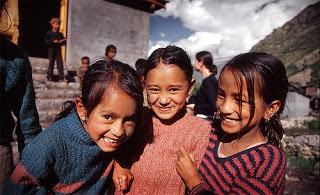How Children Learn

Our previous post was on understanding how children use the Internet. This insightful post tries to explain the processes of learning that children undergo. A must-read for parents and educators.
Earlier this year, a reader sent me copies of John Holt’s classic books on children’s education, How Children Learn and How Children Fail and tonight, I finished the first of them (and will be reading the other next). It was one of the most profoundly moving books I’ve ever read, the truest account of how I remember my best learning experiences as a child and an adult.
Holt’s basic thesis is that kids want to learn, are natural learners, and will learn more if we recognize that and let them explore their worlds, acting as respectful co-learners instead of bosses. Practically speaking, that means letting them play and playing with them, but resisting the temptation to quiz them on their knowledge or to patronize them.
The only good reason for playing games with babies is because we love them, and delight in playing these games with them and sharing in their delight with them — not because we want someday to get them into college. It is our delight in the baby and the games that makes the game fun, and worthwhile and useful for the baby. Take away the delight, and put in its place some cold-hearted calculation about future IQ and SAT scores and we kill the game, for ourselves and the baby. If we go on for long in this spirit the babies will soon refuse to play — or if they do, play only in the spirit of school, i.e., because they think we’ll be disappointed or angry if they don’t…
The child is curious. He wants to make sense out of things, find out how things work, gain competence and control over himself and his environment, do what he can see other people doing. He is open, receptive and perceptive. He does not shut himself off from the strange, confused, complicated world around him. He observes it closely and sharply, tries to take it all in. He doesn not merely observe the world around him, but tastes it, touches it, hefts it, bends it, breaks it. To find out how reality works, he works on it. He is bold. He is not afraid of making mistakes. And he is patient. He can tolerate an extraordinary amount of uncertainty, confusion, ignorance, and suspense. He does not have to have instant meaning in any new situation. He is willing and able for meaning to come to him — even if it comes very slowly, which it usually does…







